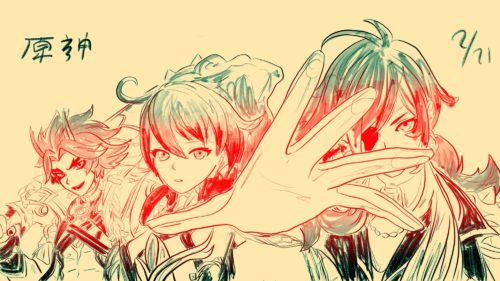Bohan Phoenix can save U.S.-China relations

Bohan Phoenix is an explicitly bicultural rapper whose identity is his bread and butter. He was born in Hubei but moved to Brooklyn when he was 11, the perfect pre-teen age to embrace hip-hop, a New York tradition. He raps across the U.S.-China culture gap, often harnessing his bicultural identity to inspire his lyrics.
Bohan bounces between the two countries, spending time with producers and pals in Chengdu, New York, Shanghai, Los Angeles, Beijing, and more. Self-nicknamed Mr. Overseas, Bohan is “away” in the sense that no matter where he is, he can’t be in both countries at once.
He confronts stereotypes as they work against him in both the U.S. and China; he is neither the typical good Chinese boy nor the classic portrait of an American rapper. As he says in “Product,” “Back overseas my family look at me crazy, I get it though, hey ’cause over here they look at me crazy but fuck it, I get it though.” He rejects both stereotypes and forges his own path as a new kind of rapper, who neither conforms to nor eschews his Chineseness or Americanness. Instead, he tries to highlight the best of both distinct worlds.
This is the crux of his brand. He delivers portions of China’s culture to Americans and vice versa. He also explains himself, expressing a sense of vulnerability that is rare in the rap game. Bohan has adopted Chengdu, the rap capital of China, as his official Chinese home base, and named his newest EP Yaode (which means “word” or “fo sho” in Sichuanese slang, as he explains here).
“3 Days in Chengdu / 回到成都,” off his album JALA (“add spice”), might be his most directly nostalgic song, which tells his origin story and offers raw admissions about the difficulty of being distant — emotionally and geographically — from his family and heritage.
In the music video, he travels to China and takes the demeanor of a fun-loving rapper, happily charged with the task of representing cultural components of both countries that are most important to him: from the U.S., the art of rapping itself, and from China, his family and food. At a Chengdu panda base, a Shanghai concert, and a Chinese airport, he tells the story of where he’s from, alternating languages.
He raps at a Buddhisit temple, at a noodle shop, on stage with the Higher Brothers, and sitting across from an old man dressed in Hanfu. “I miss grandpa,” he says, while sitting on the couch with his grandfather, who stares straight ahead wearing a gray wife beater. He raps alongside his American friends, who he takes out for chuanr in Chengdu. They attack sticks of meat and squid, shirtless. Still rapping.
Bohan is not afraid — not only of walking the line between both cultures, but of making the ambiguous space between a culture of its own. He is a much-needed icon for the huge (and disproportionately represented) Chinese American population. Given the importance of positive Sino-American relations, he might set a worthwhile example for those who seek to alienate one of the world’s two biggest economies from the other.
Through his especially honest songs, including “3 Days in Chengdu,” “Eastside,” and “Yaode,” he exposes the challenge and the fun of navigating the space between being Chinese, American, and simply himself.
Lyrics:
湖北的小孩,爸从小不在
Hubei kid, dad left when I was little
被姥姥养大,03年离开
raised by grandma, until we left in 03
搬去了北美,说唱的李白
moved to America, rap like Li Bai
我开玩笑 没有那么厉害
I’m kidding, I’m not that special
妈妈她爱我,好久没回家
My mom loves me, she hasn’t been home in so long
好久都没时间有空会回你电话
for a while haven’t had time to call you back
好久都没见你脸身体都还好吗
haven’t seen your face in a long time are you healthy and happy?
我记得上次你做的饭做的好辣
I remember last time the food you made was spicy
i got the heat for the winter
i make it snow in the summer
my mama told me remember
she told me bohan remember
money don’t make you no winner
money don’t make you the man
money don’t make you that why you make money
and then you put on for ya sam
i got no money no problems
i count my blessings i do
Friday Song is SupChina’s weekly sign-off. Let us know what you thought of the week that was in the comments below, or email editors@thechinaproject.com.





